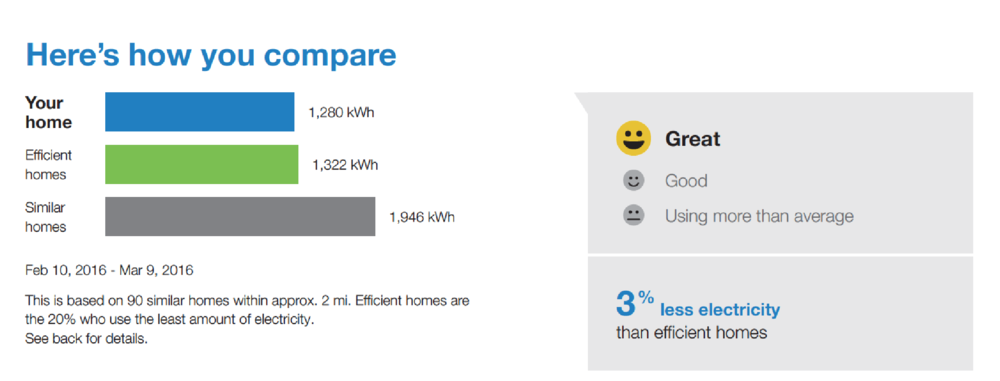Do they think what you think they think?
Social norms can exert a powerful influence on behavior. A recent study summarized in the Harvard Business Review suggests that the best way to persuade people to reduce power consumption is not to preach to them about the dangers of global warming, but rather to turn conservation into a social norm.
In other words, if you think your neighbors care about energy conservation, there is a good chance you will start to care, too.
Opower has a product called the Home Energy Report (HER), which not only tells you how much power you are consuming but also how much your neighbors are consuming. This report leads to an average energy savings of 1-2% per year but those averages vary quite a lot. Further research has suggested that the difference is attributable to how important people believe energy saving is to their neighbors.
As the article states, “Receiving the HER with information about your neighbors’ energy consumption has a stronger influence on your own energy use when you believe that your neighbors care about saving energy as an issue.” In fact, that is a more important variable than one’s own beliefs.
This has applications in other contexts when trying to influence behavior. If you want employees to take all their vacation days, it’s probably useful to say “85% of your colleagues use their vacation days by the end of each year.” However, it may be better to say, “All of us value time at home with our families. That’s why 85% of your colleagues use all their vacation days by the end of the year.”
So in research, perhaps there is something to be said for understanding not only people’s thoughts and feelings about a topic – but also understanding the stories people tell themselves about others’ thoughts and feelings on the same topic.

